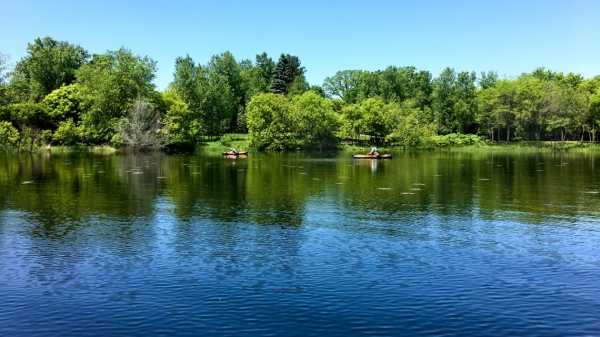There could be billions of shallow lakes and ponds on Earth, though lack of mapping systems makes it hard to know just how many exist. Together, they emit significant amounts of greenhouse gases into the atmosphere, but emissions from these systems vary considerably and are not well understood.
Now, a new study measures methane and carbon dioxide emissions from 30 small lakes and ponds (one acre or less) in temperate areas of Europe and North America, revealing that the smallest and shallowest bodies of water exhibit the greatest variability over time.
The paper marks an important step toward calibrating climate models so they better predict emissions from inland waterbodies and it points to the need to study small waterbodies more closely.
Read more at: Cornell University
Undergraduate researchers collect samples on a pond in Rosemount, Minnesota, in 2019. (Photo Credit: Meredith Holgerson)


